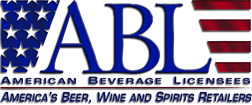Fighting to Keep Their Doors Open,
Local Bars & Taverns Need Support Now More Than Ever
APRIL 30, 2020 – BETHESDA, MD – Each year, American Beverage Licensees (ABL) reminds everyone that “May is Tavern Month” and encourages Americans to celebrate their local bars and taverns by stopping in and supporting these small businesses.
But this year is different.
With the COVID-19 crisis permeating every state, Main Street bars and taverns are in the fight of their lives as many have been forced to close their doors, lay off staff and severely alter or limit their operations. What has always been an annual celebration is now a national emergency.
During most crises, corner bars and taverns are reliable refuges of normalcy, and some of the first to help their communities by supporting local economies, providing jobs and contributing to numerous nonprofits and charities. But as the COVID-19 crisis continues, many of these family-owned small businesses are at risk of closing their doors permanently.
“What we stand to lose – economically, culturally, societally – with the widespread, permanent closure of bars and taverns is enormous,” said ABL Executive Director John Bodnovich.
“The job losses and financial impact continue to be tallied, but the mental and emotional costs of this crisis are incalculable. Bar and tavern owners face gut-wrenching decisions over their businesses and with their staff members, many of whom are like family, and are often as well-known to customers as the establishments themselves.”
Until this spring, bars, taverns and other on-premise licensed establishments have been an important cog in the hospitality industry economic machine. In the U.S., direct on-premise retail alcohol sales produce nearly $80.5 billion in direct economic impact; create more than 1.5 million jobs; generate $38.8 billion in direct wages and benefits; and provide over $31.5 billion in tax revenue annually.[1]
When including all sales by on-premise, full-service restaurants and drinking places, those numbers climb to 6.9 million jobs; $175.9 billion in direct wages and benefits; and over $363.3 billion in direct economic impact.
But with the onset of the COVID-19 crisis, local bars and taverns are in a world of hurt.
Restrictions placed by states on on-premise sales of beverage alcohol products for the month of April alone will amount to losses of over $8.2 billion in sales, more than 148,000 total jobs, and $5.3 billion in total wages. This does not even consider impacts from closures that begin in March or those that will extend into May or beyond.[2]
ABL and state bar and tavern associations are working with members to makes plans to reopen in a “new normal” where bars and taverns will be counted on to provide the economic growth required to help the country emerge from this crisis.
But for now, America’s bars and taverns are looking to national, state, local and industry leaders, as well as their loyal customers, for support and assistance to include:
- White House – The White House Coronavirus Task Force must include in state reopening guidelines that bars and taverns have the opportunity to safely and responsibly reopen in the same phase and on a level playing field with restaurants and other similarly-situated businesses. They are willing and ready to take the necessary steps to ensure the safety of the public and their guests and know what it means to be accountable businesspeople.
- Congress – Bars and taverns appreciate Congress’ leadership in providing much needed relief in the CARES Act and supplemental legislation to bolster small business loan programs, but more relief is needed for hospitality businesses that account for 60% of jobs lost on account of COVID-19.
- Governors – If bars and taverns are left behind in the reopening process now, many of them will never open their doors again. This means they will not be able to help rebuild their communities and get Americans back to work as the COVID-19 crisis subsides. To overcome the long-term fiscal and employment impact of COVID-19, governors should consider directing aid toward these businesses and their employees and allow them to reopen as soon as it is safe and practicable.
- Industry – The outpouring of support for bartenders, servers and back-of-house employees from the beverage alcohol industry has been generous and commendable. Bar and tavern businesses need the alcohol industry’s continued support to preserve the venues and destinations where beer, wine and spirits products can be discovered and enjoyed.
- Customers – Once they can reopen, bars and taverns need the support of their loyal customers, many of whom have already shown their support during this crisis. From regular customers to happy hours to celebrations of all kinds, establishments count on their communities just as much as their communities count on them.
This May, join ABL and its state bar and tavern association affiliates nationwide in supporting some of the last truly Main Street businesses as they fight to keep serving their communities. With the help of their customers, communities, industry and elected leaders, they will meet this challenge and continue the great American traditions of conviviality and hospitality in what, despite these challenging times, remains the Friendliest Place in Town.
[1] John Dunham & Associates. 2018 Economic Impact Study of America’s Beer, Wine and Spirits Retailers. New York, August 2018.
[2] John Dunham & Associates. American Beverage Licensees COVID-19 Impact Model. New York, April 2020.

